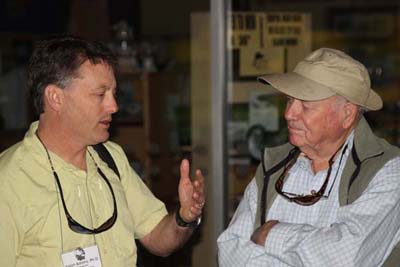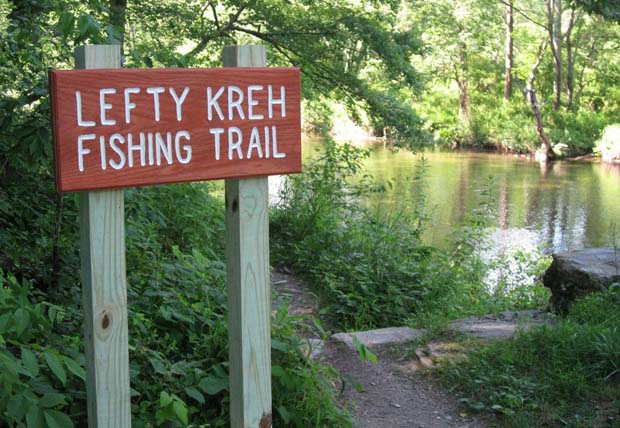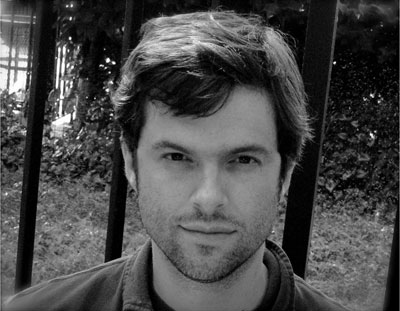 Southern Master: The Legend of Lefty
Southern Master: The Legend of Lefty
by Monte Burke – Maryland – August/September 2015
[dropcap]T[/dropcap]here’s no angler alive more famous than Lefty Kreh, and no one who has done more for fly fishing, introducing the sport to legions (and angering traditionalists along the way). Even at ninety years old he can still outcast you—and then charm you with his trademark smileWhen it comes to Lefty Kreh, one must start with the cast. The slinging of a fly line is the essential act of fly fishing, its biomechanical heart, and its most significant barrier to entry. Kreh is one of the art’s true grand masters, its greatest innovator and most prolific teacher. And though there are vastly more important gifts that Kreh has bestowed upon the sport over seven decades, it is primarily because of the cast that he is the best-known fly fisherman in history, “the sport’s Babe Ruth, but even bigger,” as his friend and fellow fly-fishing icon Flip Pallot describes him. Unfortunately for Kreh and me, the cast we will begin with here is mine.
It is a cool spring day in Cockeysville, Maryland, and Kreh is driving his Toyota 4Runner through the town’s gridded streets, carefully maintaining the speed limit. His left arm is comfortably placed on a homemade foam armrest that he’s fit into the driver’s side door. On the top of his car, an orange fishing float that he’s attached to the antenna bobs in the wind. “It sure as hell makes it easier to find this car in a crowded parking lot,” he says by way of explanation.
We pass by modest ranch houses, like the one Kreh lives in, and strips of stores. When Kreh moved here four decades ago, most of the area was still farmland. It is now a suburb, subsumed by the city of Baltimore. Kreh is wearing his hallmark hat, the “upper-downer,” so named because of its side flaps, which he can pull down over his ears. The hat covers his bald spot, which Kreh calls “a solar panel for a love machine,” one of his many go-to one-liners. The cloudy sky spits out sporadic raindrops.
We pull into a little town park, which contains a small pond. Kreh hands me a rod. He has recently celebrated his ninetieth birthday. For the most part, he appears and acts like a man much younger. He’s never had to wear a hearing aid, nor does he need eyeglasses. His nine decades on earth have exacted some tolls, though. He’s had a mild stroke, a heart attack, parts of his intestine removed, cataracts, and various serious knee problems. As he walks now ahead of me, he teeters a bit, like an ocean buoy.
We come to a spot on the pond, maybe ten yards long, that’s devoid of the knee-high grasses rimming the rest of the shoreline. “I keep this clear with a hand scythe,” Kreh says. There’s a faltering little waterspout in the middle of the pond. This is decidedly not the pastoral River Test in England, or some endless empty bonefish flat in Andros. But it is, appropriately, the place where Kreh has taken everyone, from the English gentry to elementary school janitors, to teach them to cast a fly rod better. To break down that barrier.

Lefty with Aaron Adams, director of operations at the Bonefish & Tarpon Trust, chats with Lefty at recent BTT Symposium. Fly Life Magazine.com image.
We rig up. “Let me see what you’ve got,” he says. I am both nervous and excited to cast in front of the legend. I first picked up a fly rod when I was eight. Over the subsequent decades, I have cast them rather obsessively, and have long held the belief that I am reasonably proficient at it. That is, until now.
I take a few false casts and throw out some line.
“Did you look at your back cast?” Kreh asks me.
No,” I meekly reply. It’s another one of his go-to lines, so I know the forthcoming punch line. That doesn’t make it sting any less, though.
“Well, it’s a good thing because it’s ugly as hell,” he says, then snorts, a tic of his that acts almost as a means of punctuation.



